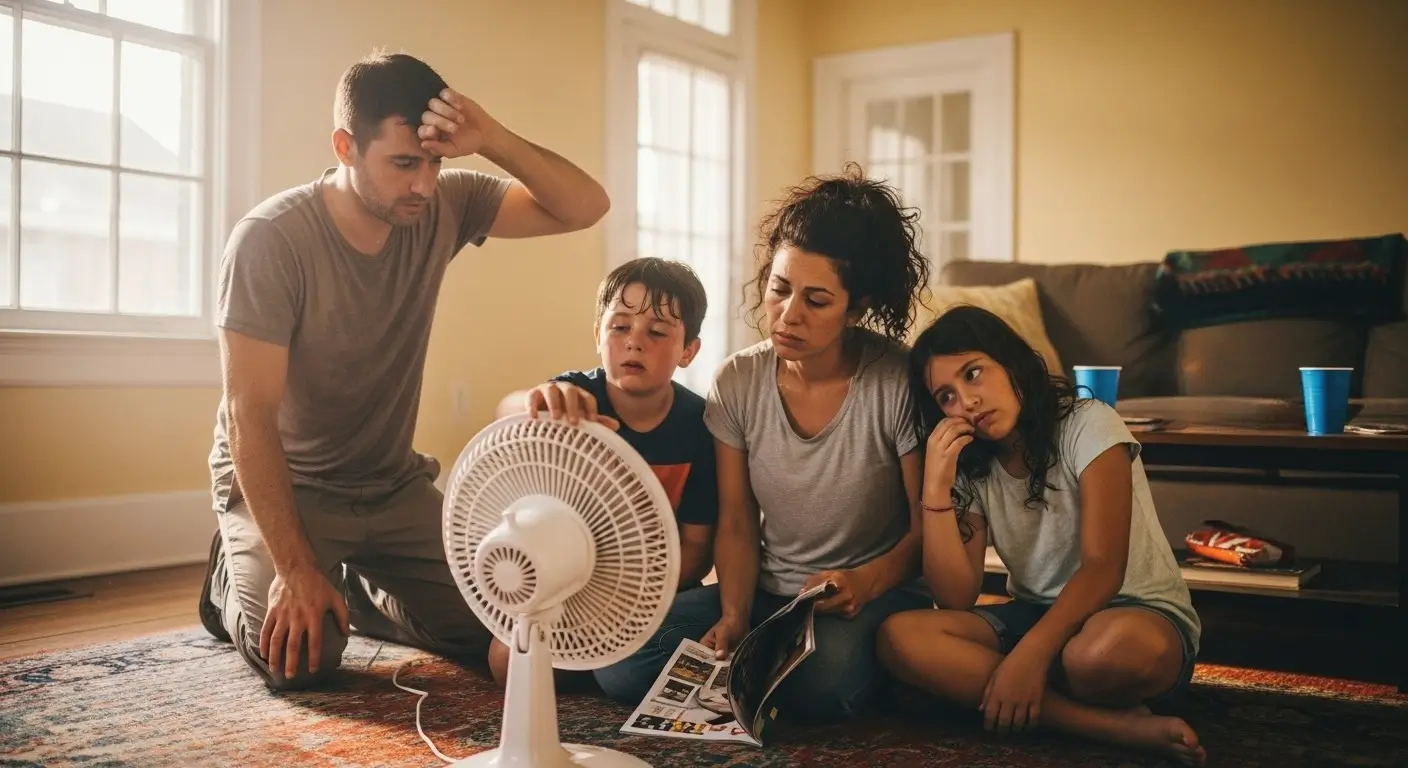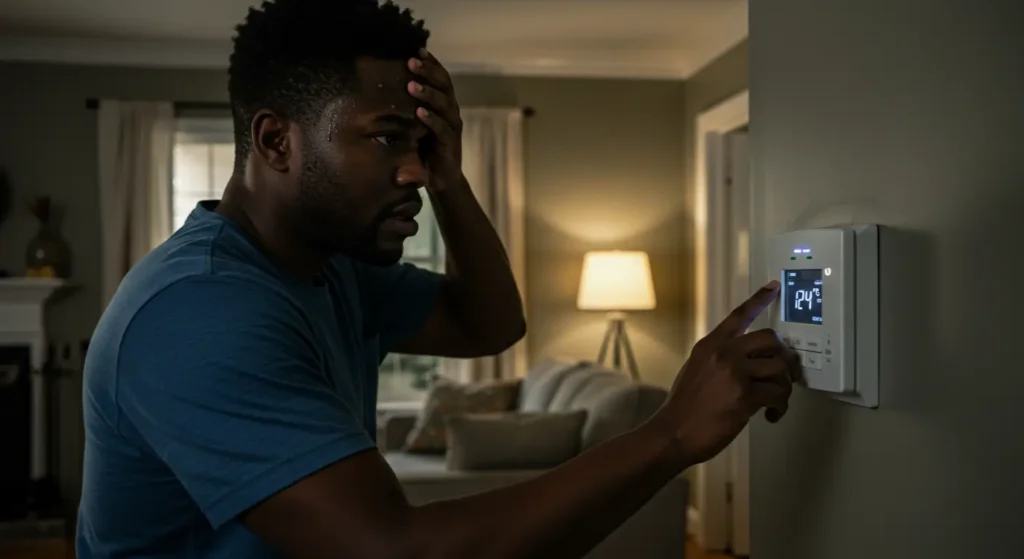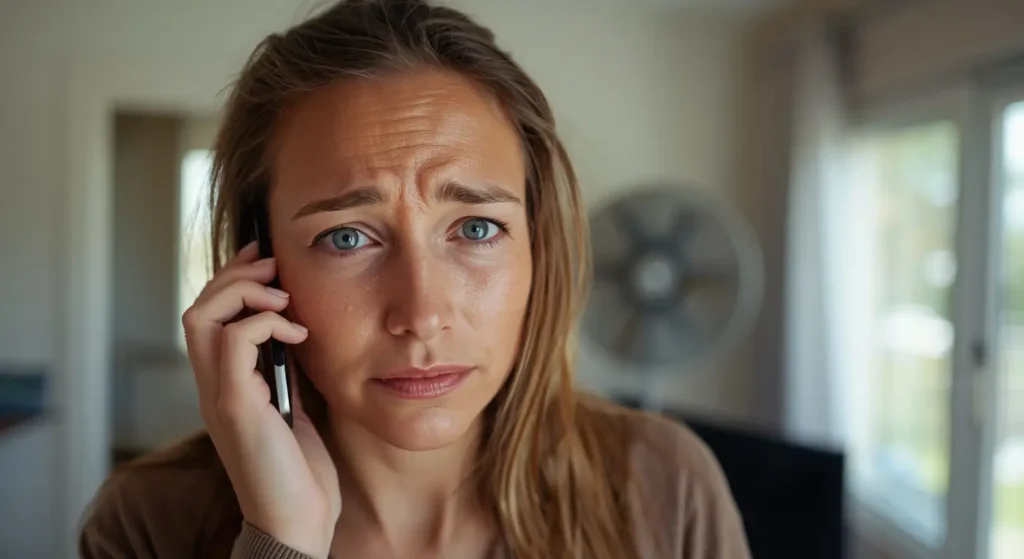Running, but the AC not cooling your New Orleans home? Learn immediate troubleshooting steps and when to call for emergency AC repair from local experts.
There’s nothing quite like that sinking feeling when you realize your AC is running, the vents are blowing air, but your house feels more like a sauna than the cool refuge you’re counting on. In New Orleans, where the humidity can make 85 degrees feel like 100, an AC not cooling properly isn’t just uncomfortable – it’s borderline unbearable.
We get calls about this problem more than just about anything else during our long summer season. Homeowners tell us their system seems to be working – they can hear it running, feel air coming out of the vents – but somehow the house just won’t cool down. And in our climate, where the air is thick enough to swim through half the year, even a slight cooling problem can make your home feel miserable fast.
The good news is that a lot of cooling issues have simple solutions you can try before calling for help. The not-so-good news is that some problems require professional attention, and the longer you wait, the harder your system has to work and the more uncomfortable your family gets. Let’s walk through what you can check safely on your own, and when it’s time to pick up the phone and get some expert help.
Understanding the Problem: Running vs. Cooling
First, let’s talk about what’s happening when your AC is running but not cooling. Your air conditioning system has two primary functions: removing heat from your home and extracting moisture from the air. In most parts of the country, heat removal is the big challenge. However, here in New Orleans, that humidity is just as important, if not more so.
When your system can’t handle both jobs effectively, you end up with that clammy, sticky feeling even when the AC is running. The air might be moving, it might even be slightly cooler than it would be otherwise, but it’s not that crisp, dry cool that makes you want to grab a sweater when you come in from outside.
This is especially true during our peak summer months when the outdoor temperature is in the 90s and the humidity is through the roof. Your AC system is working as hard as it can, but it’s fighting a losing battle against the weather. Sometimes that’s normal – no system can work miracles when Mother Nature is really showing off. But other times, it’s a sign that something needs attention.
First Things to Check (DIY Safe)
Before you start worrying about major repairs or expensive service calls, there are several things you can check when your AC is not cooling properly. These are all safe for homeowners to investigate, and honestly, they solve the issue more often than you might think.
Start with your air filter. We cannot stress this enough – in New Orleans, with all the dust, pollen, and other airborne particles floating around, filters get dirty quickly. A completely clogged filter doesn’t just reduce airflow; it causes your system to work so much harder that it can’t keep up with the cooling demand. If you can’t remember the last time you changed it, or if you pull it out and can’t see light through it, that’s probably your problem right there. Change it and give your system an hour or two to catch up.
Check your thermostat settings carefully. This might sound obvious, but you’d be surprised how often we find thermostats set to “heat” instead of “cool,” or the fan set to “on” instead of “auto.” If someone in your family has been adjusting the settings, or if you’ve experienced a recent power outage, double-check that everything is set as you expect it to be. Also, make sure the temperature you’ve set is actually lower than what the house currently reads.
Walk around and look at your vents. Are return air vents blocked by furniture or curtains? Are supply vents closed or blocked in unused rooms? Your system needs to be able to pull air in and push air out efficiently, and blocked vents can disrupt the entire balance. We’ve seen situations where closing vents in unused rooms actually made the cooling problem worse, not better.
Take a look at your outdoor unit. That big condenser outside needs room to breathe, but it’s incredible how quickly it can get choked up. Grass clippings from mowing, leaves, dirt, or plants that have grown up around the unit can all restrict airflow. If you can see that the coils are dirty or blocked, or if there’s less than two feet of clearance around the unit, that could be your problem. You can gently clean off obvious debris, but be careful not to damage the delicate fins on the coils.
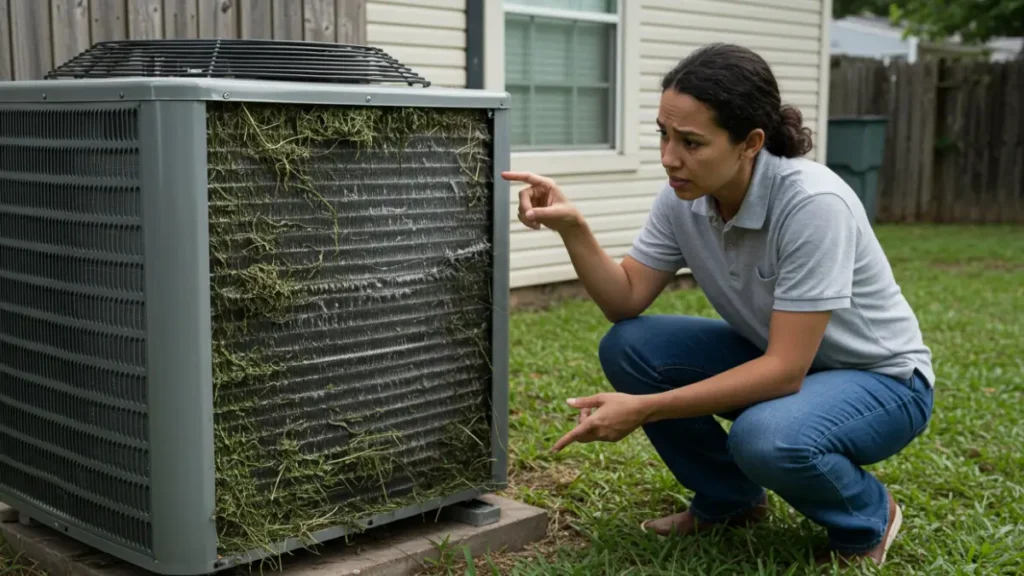
Signs of Bigger Problems (Call for Help)
While there are several things you can safely check yourself, there are also clear signs that you need professional help. Don’t try to tackle these issues on your own – they involve refrigerant, electrical components, or other systems that require proper tools and training to work on safely.
Ice anywhere on your system is a red flag. Whether it’s on the outdoor unit, the indoor coil, or the refrigerant lines, ice means something is seriously wrong with the cooling process. Turn off your system immediately and call for service. Running an iced-up system can cause expensive damage to the compressor.
If your AC blowing hot but not cold air, that’s usually a sign of refrigerant problems, compressor issues, or electrical problems. These aren’t DIY fixes, and continuing to run the system might make the problem worse.
Strange sounds or smells are always worth investigating professionally. Grinding, squealing, or banging noises can indicate mechanical problems that will worsen over time. Electrical smells, burning odors, or chemical smells can indicate safety issues that need immediate attention.
If your system is running constantly but your house is getting warmer, something is definitely wrong. A properly functioning system should be able to at least maintain the temperature, even on hot days. If it’s losing ground, there’s likely a significant problem that needs professional diagnosis.
When New Orleans Heat Overwhelms Your System
Sometimes, even a perfectly functioning AC system will struggle to keep up with our weather. When it’s 95 degrees outside with 80% humidity, and your house has been baking in the sun all day, even the best system needs time to catch up.
Here’s what’s realistic to expect: Most residential AC systems are designed to cool your house to about 20 degrees below the outdoor temperature. So if it’s 95 outside, getting your house down to 75 is asking a lot, especially if the system has been off or set higher during the day.
Older systems have an even harder time. If your AC is more than 10-15 years old, it’s probably not as efficient as it was when it was new, and it might not have been sized correctly for our current climate demands in the first place. Technology has improved, and our summers seem to be getting more intense.
Emergency cooling strategies while you’re waiting for professional help: Close curtains and blinds to block out the sun, use fans to circulate air and make it feel cooler, avoid using heat-generating appliances during the hottest parts of the day, and consider setting up a temporary cooling space in one room if possible.
Getting Professional Help
If you’ve checked the basics and your AC still isn’t cooling properly, it’s time to call for professional help. The longer you wait, the harder your system has to work, the more energy you waste, and the more uncomfortable your family gets.
When you call for AC repair near you, be ready to describe what’s happening as specifically as possible. Is the system blowing air but it’s not cold? Is it not blowing air at all? Are there any strange sounds or smells? The more information you can provide, the better we can prepare for what we might find.
A professional diagnosis will check things you cannot safely investigate yourself, including refrigerant levels, electrical components, internal mechanical parts, and system performance under load. Sometimes the problem is simple and can be fixed quickly. At other times, it may reveal that your system requires more significant attention.
If you’re dealing with a cooling emergency and need help right away, our complete emergency guidewalks you through everything you need to know about getting fast, reliable service when your family needs it most.
Preventing Future Cooling Problems
The best cooling problem is the one that never happens. While some issues are simply due to bad luck or normal wear and tear, many cooling problems can be prevented through regular maintenance and attention.
In New Orleans, regular maintenance isn’t optional – it’s essential. Our climate puts extra stress on AC systems, and small problems can quickly become big ones if they’re not caught early. Having your system checked before the cooling season really heats up gives you the best chance of avoiding problems when you need your AC most.
Simple things you can do year-round: Change your filter regularly (monthly during heavy-use periods), keep the area around your outdoor unit clear, pay attention to any changes in how your system sounds or performs, and don’t ignore small problems hoping they’ll go away on their own.
Our maintenance services are designed specifically for the unique challenges of the New Orleans climate, helping you avoid emergency situations and keep your system running efficiently when you need it most.
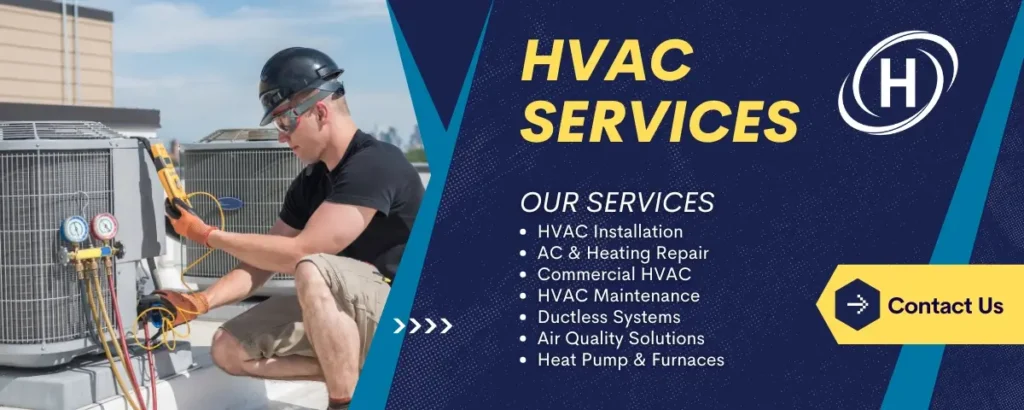
Get Your AC Cooling Again
If your AC isn’t cooling your home properly, don’t suffer through another hot, humid day hoping the problem will fix itself. The sooner you address cooling issues, the easier and less expensive they usually are to solve.
Call Hagerman Services at (504) 314-1486 for fast, reliable service throughout New Orleans and surrounding parishes. We’ll diagnose the issue with your cooling system, explain your options in plain English, and help your family get back to being comfortable in your own home.
We know that cooling problems don’t stick to convenient schedules. When you need us, we’ll be ready to help.
Contact us today to get your AC cooling properly again.
Frequently Asked Questions
Q: Why is my AC running but not cooling my New Orleans home?
A: The most common causes are dirty air filters, blocked vents, or debris around the outdoor unit. In our humid climate, even small airflow restrictions can prevent proper cooling. Check your filter first – it’s often the culprit in New Orleans’ dusty environment.
Q: How long should it take for my AC to cool down my house?
A: In New Orleans heat, expect 2-4 hours for your AC to bring the temperature down, especially if the house has been warm all day. Systems work best when maintaining temperature rather than making big corrections in extreme weather.
Q: Can high humidity make my AC seem like it’s not cooling?
A: Absolutely. When humidity is high, even cool air feels uncomfortable and clammy. Your AC needs to remove both heat and moisture. If it can’t handle the humidity load, your house won’t feel properly cool, even if the temperature drops.
Q: Is it normal for my air conditioner to struggle when the outside temperature exceeds 90 degrees?
A: Some struggle is normal during extreme heat, especially with older systems. However, your AC should still be able to maintain a reasonable temperature difference. If your house is getting warmer despite the AC running constantly, that indicates a problem.
Q: Should I turn my AC off if it’s not cooling properly?
A: If you see ice anywhere on the system, turn it off immediately. Otherwise, you can leave it running while you check basic issues like filters and vents. If you suspect electrical problems or hear strange sounds, turn it off and call for service.
Q: When should I call for professional AC repair in New Orleans?
A: Call for service if basic troubleshooting doesn’t solve the problem, if you see ice on the system, if it’s blowing warm air, or if there are strange sounds or smells. Don’t wait – cooling problems typically get worse, not better, especially in our demanding climate.
